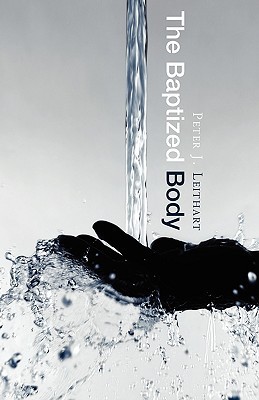Aug
28
2013

“…if everyone in a culture is baptized, and that baptism is simply an ‘efficacious call,’ then everyone is a grub with great expectations, and there is no celebration of butterflies.”
Chapter 1 continued
See the Baptism links page for all articles in this series.
Do Baptists talk to their babies?
The question of infant faith is not: “Are infants capable of receiving this jolt of divine power?” The question is: “Can infants respond to other persons? Do infants have personal relations?”
Continue reading
4 comments | tags: Baptism, Peter Leithart | posted in Bible Matrix, Biblical Theology
Aug
25
2013

“At every paedobaptism,
earthly kingdom trumps heavenly priesthood,
and the blood of the prophet Abel cries from the ground.”
Chapter 1 continued
See the Baptism links page for all articles in this series.
The Social Contract
Dr Leithart continues by pining for the Middle Ages, the days when baptism defined both religious and civil membership for every member of society, both great and small, men and women, adults and infants. He states that the Anabaptist idea that baptism was a purely religious rite was “novel and revolutionary.” Perhaps it was novel in the Middle Ages, but it wasn’t new. We must ask, what inspired it? The answer is not history or tradition but the Scriptures. I have come to understand the relationship between Church and State from other writings of Jordan and Leithart, so I don’t understand Leithart’s failure to apply those definitions here.
Continue reading
12 comments | tags: Baptism, Church History, Peter Leithart | posted in Biblical Theology
Aug
23
2013

“…when mud is slung, few mud-slingers can rival Reformed mud-slingers.” (p. viii)
In my experience, arguing with a paedobaptist is like arguing with an evolutionist. The assumption that paedobaptism is biblical is the lens through which everything gets interpreted as evidence. As one paedobaptist friend put it, “I like to argue from a position of truth.” But if the eye (or its lens) is full of darkness, so is the entire body, especially the baptized one.
Continue reading
3 comments | tags: Baptism, Peter Leithart | posted in Biblical Theology
Aug
20
2013
 Introduction
Introduction
Recently, I’ve been re-reading Rich Lusk’s Paedofaith: A Primer on the Mystery of Infant Salvation and a Handbook for Covenant Parents. This reading was with the intention of blogging through it and dealing with the main points, as is the helpful practice of Doug Wilson with certain books.
The problem is that Lusk makes some enormous, illogical and unbiblical assumptions in his preface and introduction, and these assumptions are based on arguments found elsewhere.
Continue reading
Comments Off | tags: Baptism, Federal Vision, Peter Leithart, Rich Lusk | posted in Biblical Theology
Aug
6
2013
 You Shall Likewise Perish
You Shall Likewise Perish
Peter Leithart has posted a response from Joe Rigney concerning the meaning of Luke 12-13. We had a look at the structure of these chapters here recently (See 666 in the Gospel of Luke), so I thought it would be interesting to see how these two approaches “speak to each other.”
Continue reading
Comments Off | tags: AD70, Joe Rigney, Literary Structure, Luke, Peter Leithart | posted in Bible Matrix, Biblical Theology, Quotes, The Last Days
Jul
5
2013
 or A Kingdom Mind
or A Kingdom Mind
The best part of the Avengers movie for me was the infighting among the super heroes, and how the conflict disappeared once they had a common enemy. Each hero was unique, with his or her special skills. As in any relationship, marriage, community or committee, the differences are misinterpreted as sources of conflict and competition instead of complementary strengths. Once the heroes were out on the ground, the comical infighting (and misuse of gifts) ceased, and they started operating like the well-tuned orchestra they were designed to be.
Continue reading
2 comments | tags: Baptism, Covenant Theology, Ecclesiology, Music, Peter Leithart | posted in Bible Matrix, Biblical Theology, Christian Life, Quotes
Jun
24
2013

or Who Is The Real Jericho?
Atheists love to embarrass Christians with a snide reference to the story of Elisha setting two bears upon some helpless children. What nobody, even Christians, seem to get is the “Covenant significance” of all the players in the story, harking back to Moses. The prophets were, after all, God’s “repo men.” [1]
[This post has been refined and included in Sweet Counsel: Essays to Brighten the Eyes.]
Continue reading
Comments Off | tags: AD70, Covenant curse, Covenant Theology, Egypt, Elisha, Feasts, Herod, Jericho, Jezebel, Kings, Leviticus, Peter Leithart, Pharaoh, Revelation | posted in Apologetics, Bible Matrix, Biblical Theology, The Last Days
Jun
20
2013
 The intro to the Reading the Bible in 3D seminar mentions the “jokes” in the Bible. In his book Deep Exegesis, Peter Leithart gives us a rundown on what a joke is to justify using the word to describe some of the allusions in Scripture. One of the reasons jokes are funny is their reliance on inside information.
The intro to the Reading the Bible in 3D seminar mentions the “jokes” in the Bible. In his book Deep Exegesis, Peter Leithart gives us a rundown on what a joke is to justify using the word to describe some of the allusions in Scripture. One of the reasons jokes are funny is their reliance on inside information.
Here’s my all-time favourite joke in the Bible.
Continue reading
Comments Off | tags: Covenant Theology, Daniel, Esther, Genesis, James Jordan, Joseph, Mordecai, Peter Leithart, Revelation, Typology | posted in Bible Matrix, Biblical Theology, Reading the Bible in 3D
May
30
2013

or The Murderess of Modernity
Joe Rigney has a great piece on the Trinity House website. With apologies to Joe, I’ll give it to you in a nutshell, then make some brief observations. But make sure you read the entire article.
Continue reading
11 comments | tags: Compromise, Culture, Esther, Genesis, Joe Rigney, Martyrdom, Mordecai, Peter Leithart | posted in Christian Life, Creation, Ethics, Quotes


































